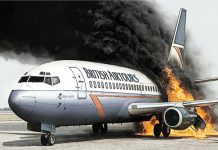
Aviation training needs to eliminate the distinction between technical and non-technical (so-called ‘soft’) skills if safety is to improve, the country’s leading aviation psychology conference heard this week.
Speaking to the PACDEFF CRM and Aviation Human Factors Conference, director of the Evidence Based Training (EBT) Foundation, Allison McDonald, said the improved safety record of airline transport meant the fewer accidents that still occurred required different skills if pilots were to avoid or minimise them.
She noted that since 1998 there had been a 95 per cent reduction in the fatal accident rate in air transport, along with a 70 per cent reduction in the rate of hull losses. ‘As aircraft technology and reliability improves, we are likely to see fewer failures that are predictable, with procedures to cover them. The events we are likely to see are more likely to be unpredictable,’ she said.
The traditional training model did not produce the skills required to cope with these situations, she said. In addition, maintaining manual skills in highly automated systems with few reversions to manual mode had become an issue.
‘For years we have relied on experienced aviation professionals to manage training and operations. This has served us well but in the face of these new challenges we can no longer afford to rely on expertise and intuition.
The EBT Foundation had asked airline trainers and checkers to reflect on the elements of an excellent pilot. ‘What’s interesting is regardless of airline, culture or region of the world, we tend to see similar responses,’ McDonald said.
‘They think about somebody who is an effective communicator, someone who prioritises tasks well, someone who remains calm, someone able to analyse and think ahead, someone who’s got good extensive knowledge, someone who involves others and works well with other people.’
‘When we look at significant challenging “black swan events” we see similar types of behaviours, when crews have managed these successfully.’
‘If these behaviours and underlying areas of competence are so pervasive in effective performance, shouldn’t they be the basis of what we’re training?’
‘In this framework, all skills are of equal importance,’ McDonald said. ‘There’s no categorisation into technical and non-technical. If these are the competencies that contribute to competence these should form the basis of pilot training.’
McDonald acknowledged that the so-called non-technical skills had often been taught in the abstract, sometimes as a PowerPoint presentation, rather than being linked to the challenges crews faced in operations.
Non-technical skills needed to be properly integrated into all forms of training, using scenario-based exercises, rather than repetitive drills, she said.
ICAO published the evidence-based training concept in 2013 and more than 50 airlines are engaged in EBT implementation.
‘It means learning through exposure to varied and challenging situations, stretching people’s performance beyond their comfort zone, providing good feedback and encouraging reflection, and ultimately learning how to manage stress and pressure.’





Comments are closed.